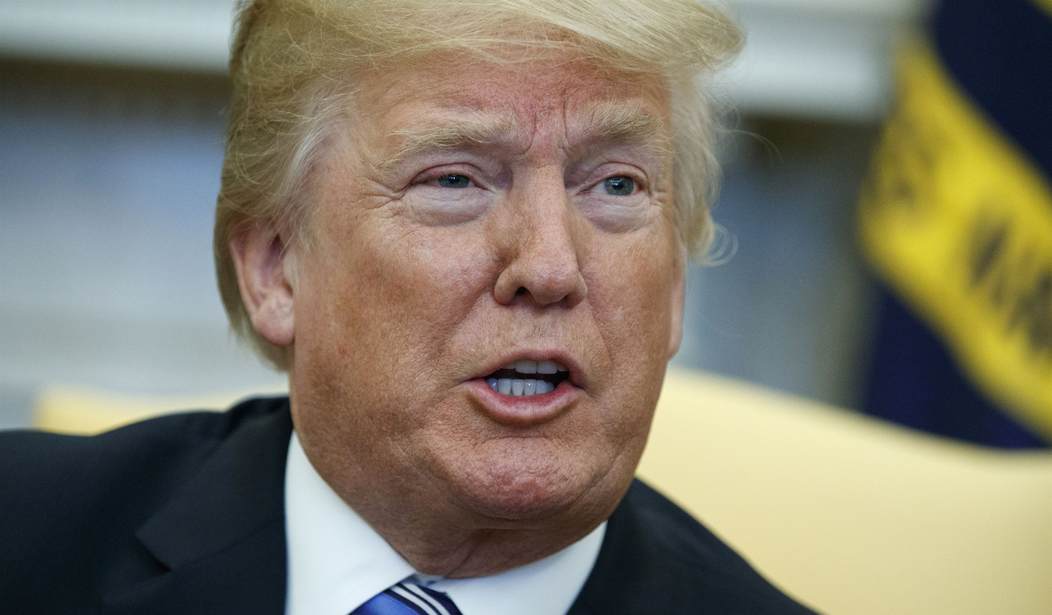It was frustrating and depressing to watch President Donald Trump recently announce misguided import taxes on steel and aluminum. Aside from the bad economics behind the decision, the saddest part of the pronouncement was to hear the president promise steel- and aluminum-workers standing behind him, "We're going to have a lot of great jobs ... coming back into our country." I wouldn't count on it.
Tariffs are import taxes. Their immediate effect will be to jack up the prices of the metals in the United States. That sounds like good news to the 140,000 steelworkers and 28,000 aluminum-workers. But it's bad news for the more than 6 million people who work in the two metal-consuming industries. Their companies will now face higher costs, which could lead to layoffs and factories moving abroad.
This will also have a chilling effect on foreign companies planning to invest in the United States. Several of them have already announced that in response to the expected rise in the metals' prices, they will put their plans to expand production, build factories and hire workers here on hold. Swedish appliance-maker Electrolux, for instance, announced it is delaying a $250 million investment in America. DowDuPont, the world's largest chemical company, is considering other countries before it builds another $6 billion steel-intensive factory.
We are told that all of this is the price we must pay to discourage subsidized competition from foreign governments and increase demand, production and employment for our domestic steel and aluminum industries. But with history and economics as our guide, we shouldn't count on that actually happening.
In 2002, steel tariffs were put in place by the Bush administration. As expected, the price of steel went up. Not surprisingly, the additional cost reduced employment in the steel-consuming industries within a year. One estimate found that up to 200,000 jobs were lost. Meanwhile, employment in the steel industry was almost flat; only about 3,500 jobs were added.
Recommended
Moreover, net steel jobs, which peaked in 1953, continued to decline. At that peak, the United States employed about 650,000 steelworkers. In the interim, steel production has remained fairly constant since the 1980s, after peaking in the 1970s. That should give pause to those who believe that steel tariffs will bring back jobs.
Though blaming foreign imports for this trend makes for an appealing sound bite, most experts understand that the biggest culprit is innovation. Whereas it used to take 10.1 man-hours to produce a ton of steel in 1980, you now need only 1.5 man-hours. Some minimills require only a half-man-hour for that output. That means that labor-intensive steel production isn't coming back. The fact that a few plants will reopen their doors in response to the imposition of tariffs won't change that.
What about the employment impact of boosting steel production to capture more than the current 70 percent share that domestic firms already have? Don't count on that, either. Steel producers would need really big capital investments to get new factories up and running to the point of significantly increasing production. And global investors aren't likely to change their behavior by parking their capital in U.S. steel, because they understand that government protection for industries clamoring for it won't lead to high and sustainable returns. They also understand that the extra U.S. steel production propped up by tariffs will most likely be too expensive to remain competitive.
Without significant capital infusion, steelmakers won't be able to produce the large volume they need to be profitable -- and without sustained profits, steel jobs won't be sustained for long, either. This probably explains why the stock prices of the big steel companies didn't move much after the steel tariffs were announced. The same is true for aluminum. The United States imports 90 percent of that metal, and the investment required to increase its domestic production would make the price uncompetitive.
The bottom line is that no matter how you look at it, President Trump was misleading these steel- and aluminum-workers by telling them that jobs in their industries will come back. He wasn't the first politician to do so, and he won't be the last, but it didn't make it any less sad to watch.

























Join the conversation as a VIP Member